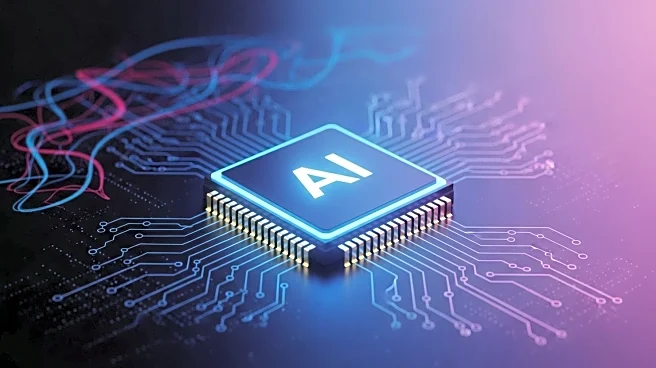What is the story about?
What's Happening?
OpenAI's recent multibillion-dollar deals with chip makers Nvidia and AMD have sparked concerns among market watchers about the sustainability of investments in artificial intelligence. The deals involve circular transactions where OpenAI pays Nvidia for chips, and Nvidia invests in OpenAI for non-controlling shares. Similar arrangements exist with AMD, where OpenAI will use AMD chips in its datacentres and has the option to buy a stake in the company. These transactions have raised alarms due to their resemblance to vendor financing practices seen during the dotcom bubble.
Why It's Important?
The concerns surrounding OpenAI's deals highlight the potential risks of a market bubble in the AI sector. The circular nature of these transactions could lead to inflated valuations and unsustainable business models, reminiscent of past financial crises. If the AI market were to experience a downturn, it could have widespread implications for investors, tech companies, and the broader economy. The situation also underscores the need for careful evaluation of AI investments and the importance of sustainable growth strategies.
Beyond the Headlines
The deals between OpenAI and chip makers reflect the intense demand for computing power to drive AI advancements. However, the reliance on such transactions raises ethical questions about the transparency and long-term viability of AI investments. Additionally, the rapid growth in AI valuations may not be matched by actual returns, as studies have shown that many organizations are not seeing significant benefits from their AI investments. This divide between expectations and reality could lead to increased scrutiny and calls for more responsible investment practices.















